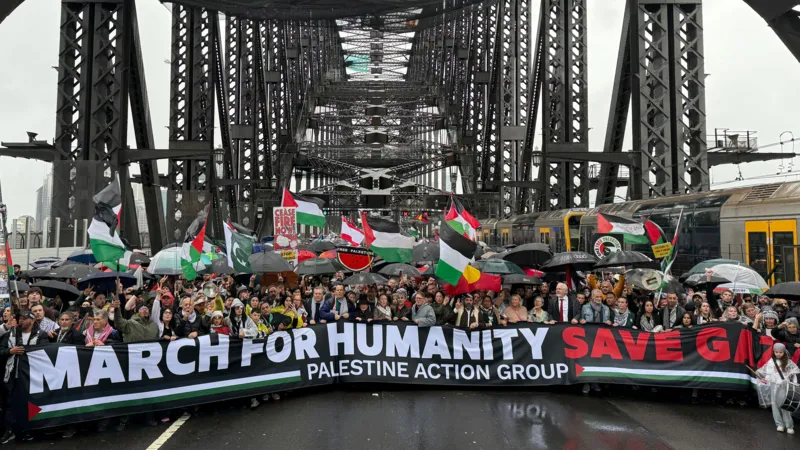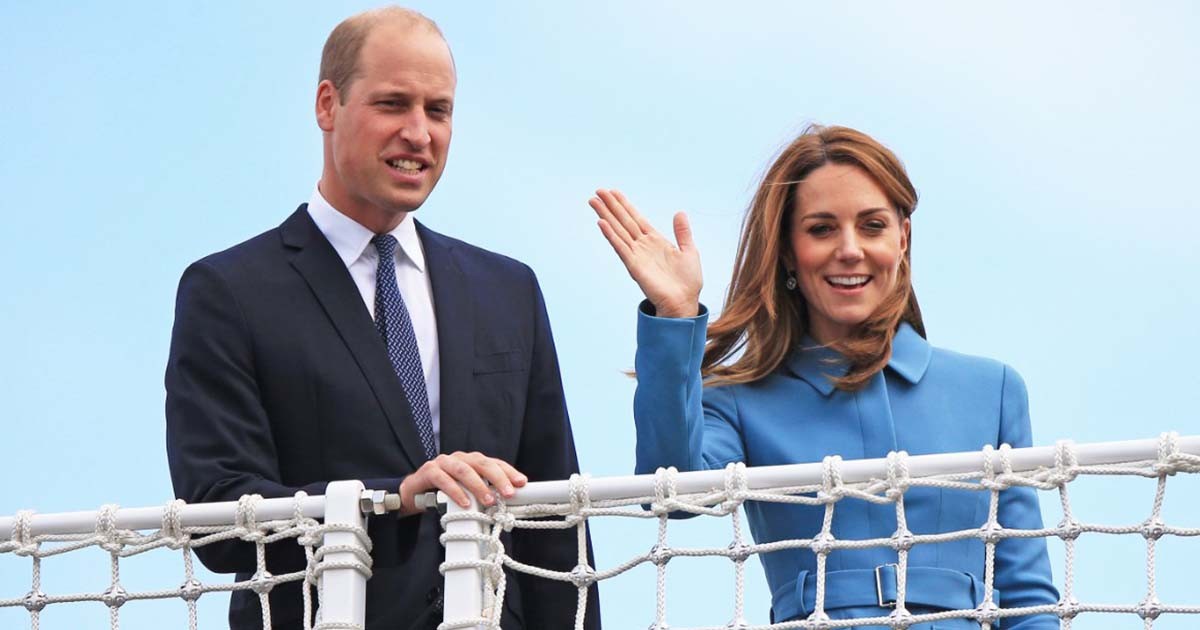A planned pro-Palestinian protest on the Sydney Harbour Bridge went ahead on Sunday, following a last-minute authorisation from the Supreme Court—an outcome organisers hailed as “historic.”
Wow.
A massive march for Palestine today in Sydney, Australia.
A sea of people demanding an end to Israel’s genocide in Gaza.
This is historic.
🇵🇸 🇦🇺 🇵🇸 🇦🇺 🇵🇸 🇦🇺 🇵🇸 🇦🇺 🇵🇸 pic.twitter.com/TM277VurYP
— sarah (@sahouraxo) August 3, 2025
Despite heavy rainfall, tens of thousands turned out for the “March for Humanity,” many carrying signs urging politicians to end the war in Gaza. Prominent attendees included WikiLeaks founder Julian Assange, federal MP Ed Husic, and former NSW Premier Bob Carr.
Read more: Ready to recognise Palestinian state: Finnish president
It was the first time the Sydney Harbour Bridge had been closed for a public demonstration since World Pride in 2023, which also drew around 50,000 participants. Chants of “Shame, shame Israel, shame, shame USA” and “What do we want? Ceasefire. When do we want it? Now” echoed through the crowds.
Families with young children were among the marchers, accompanied by a visible police presence, including riot squad officers stationed along the route.
“This may be happening on the other side of the world, but it impacts us here too,” said Alec Beville, who attended with his three-year-old son Frankie. “We could be doing so much more in terms of aid.”
“We can’t just stand by while an entire population is being starved,” added protester Zara Williams, holding her baby Avery in a sling. “Our government hasn’t imposed any meaningful sanctions on Israel.”
Roughly two hours into the protest, NSW Police issued a text alert instructing participants to stop walking north and return toward the city in a “controlled” manner, citing public safety concerns.
Read more: “Trump Can Make a Difference”: Imran Khan’s Sons Appeal on Piers Morgan Show
Police estimated that 90,000 people took part in the demonstration, while Transport for NSW warned motorists of significant disruptions across Sydney’s roads and public transport network.
The Palestine Action Group had submitted an application for the bridge march a week earlier, describing it as a response to the ongoing humanitarian crisis in Gaza. However, NSW Police initially rejected the request, citing insufficient time to develop a traffic management plan and the risk of crowd crushes.
NSW Premier Chris Minns echoed police concerns, stating the government could not support a protest of that scale and nature on the bridge, warning against “chaos” in the city.
Police subsequently sought a Supreme Court order to prohibit the event, which was denied just 24 hours before it was due to take place. Justice Belinda Rigg acknowledged the validity of safety concerns but said organiser Josh Lees had provided a compelling case for the urgency of the protest, given the humanitarian emergency in Gaza.
She ruled that there was no evidence suggesting a prohibition would improve public safety and ordered the closure of the Harbour Bridge and surrounding roads for the event.
With the court’s ruling, protesters were protected under the Summary Offences Act, shielding them from charges related to public assembly, such as obstructing traffic.
Following the court’s decision, the NSW Jewish Board of Deputies expressed “disappointment” on Instagram, criticising the protest’s authorisation.
Meanwhile, Australia faces growing international pressure to recognise Palestinian statehood. France, Canada, and the UK have all signaled they may move toward recognition—with conditions—at the upcoming UN General Assembly in September.
Speaking on ABC’s 7.30, Prime Minister Anthony Albanese said he would not be influenced by other countries’ actions and that Australia’s recognition of a Palestinian state would depend on achieving lasting security for Israel.














